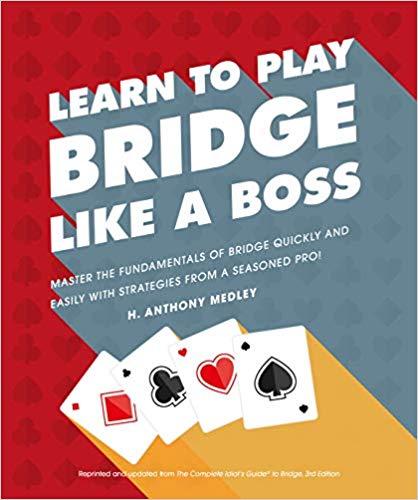|
Play like a pro with expert knowledge from a champion of the game If you don't know the ins and outs of play, bridge can seem like an intimidating game--but it doesn't have to be! Armed with the techniques and strategies in the pages of this book, you'll be bidding and winning hands like a boss! A good book for beginners, it has lots of advanced techniques useful to experienced players, too. This is as close to an all-in-one bridge book you can get.
About the Author |
||
|
The Last Full Measure (6/10) by Tony Medley 115 minutes R Headed by a terrific cast, this is based on the efforts to get a posthumous Medal of Honor awarded to William Pitsenbarger (Jeremy Irvine), a 21-year-old USAF pararescueman. Also known as para jumpers or PJs, pararescuemen are members of elite Air Force special operations units tasked with personnel recovery and medical treatment in combat and humanitarian environments. Pitsenbarger voluntarily dropped down from a rescue helicopter into the middle of the Battle of Xa Cam My, one of the fiercest battles of the Vietnam War on April 11, 1966, and is credited with rescuing 60 men before losing his life. It’s told through the eyes of Scott Huffman (Sebastian Stan), a fictional character who is a composite of Parker Hayes, a historian who interviewed many of the survivors and was instrumental in getting the DOD to review the Medal of Honor request (which had been turned down), writer/director Todd Robinson who was the prime mover for almost 20 years of getting the film made, and a few people at the Pentagon who helped to get the issue before Congress. The conceit is that Scott is an ambitious staffer who reluctantly takes the assignment to look into getting the Medal of Honor finally awarded and is a skeptic. The movie has fine performances by Christopher Plummer as Pitsenbarger’s dying father, Diane Ladd as his forgiving mother, and William Hurt and Samuel L. Jackson as a couple of the soldiers saved by Pitsenbarger. While Pitsenbarger is shown treating men who have been wounded, the film skims on what Pitsenbarger actually did to “save” almost 60 men of the Army’s 1st Infantry Division. After treating several of the men, we see him pick up a rifle and move forward into battle, but it never says why he is credited with “saving” so many men. Regardless of that anomaly, what remains is that virtually every member of the survivors said that they would have done anything to get out of there, but the one guy who could have left, Pitsenbarger, stayed and lost his life. Subliminal thoughout the film is the unasked question, why were all these good Americans fighting for their lives in a country halfway around the world in a war that had nothing to do with the security of the United States? The same question can be asked about our men and women in Afghanistan and the Middle East today. JFK, LBJ, Robert McNamara, the Bushes, the Clintons, and Obama have never adequately answered that question, blithely sending American sons and daughters, husbands and wives, mothers and fathers, to fight and die…for what? This film captures the waste these wars cause, especially Vietnam. The film only barely touches on Pitsenbarger and his actions; his character is onscreen for maybe 10 minutes. It is basically the story of the people who fought for 30 years to get the medal awarded to him posthumously. Frankly, because it skims so much on what exactly that Pitsenbarger did to be awarded the Medal of Honor, it does a disservice to him. Maybe he deserved it for voluntarily jumping into a battle in which he did not have to engage, but most soldiers are volunteering their lives when they enter battle, so that's not enough to deserve the Medal of Honor. The fact that the movie is so silent on his actions could indicate that maybe his actions did not merit the nation's highest award for valor. Certainly many will come out of this film with the same question.
|
||
